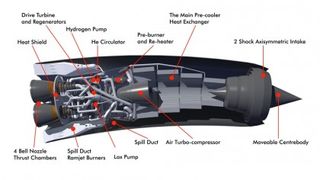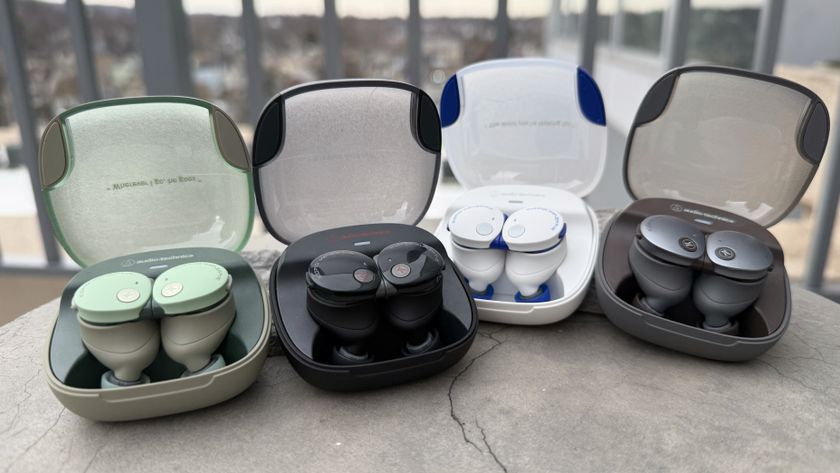Sabre rattling: A rocket revolution
A special Brit Week in Science
The microbes implanted on the surface of the cell break down the organic compounds ejected in urine to produce carbon dioxide and electrons. The electrons pass across a membrane from anode to cathode combining with protons to form hydrogen, which in turn reacts with oxygen to create pure water. The by-product is the flow of electrons, creating a current and producing electricity that can be used for anything -- in this case charging a phone. The MFCs were stacked to produce enough electricity to power up the phone to be able to send texts, browse the web or make a quick phone call. The researchers propose using this kind of system to essentially turn your toilet into a power station; effectively free electricity. [UWE]
And then we gave the world the DNA double-helix
It wasn't just modern antibiotics we Brits gave the world either. The structure of one of the founding platforms of life as we know it, DNA, was discovered right here in the UK.
Through X-ray diffraction, a team of researchers famously headed up by James Watson and Francis Crick discovered that DNA formed into a double-helix structure held together by linked base pairs forming a central twisting backbone, evidence of which was published by Watson and Crick, as well as Franklin and Gosling in Nature in 1952. Crick later went on to set out the central dogma for molecular biology, including the replication mechanisms and the relationship between DNA, RNA and proteins. That work formed the basis of genetic and modern biology from then on, and we wouldn't be where we are today without it.
British government sinks £60m into revolutionary new rocket engine
Britain's getting back into the space race with a brand new Synergistic Air-Breathing Rocket Engine (Sabre) that'll be able to shoot a re-usable space plane into orbit. The jet-cum-rocket is being designed and built by Reaction Engines in the UK, and will burn a mixture of oxygen and hydrogen.

What makes it different, though, is that at low altitude it'll draw the oxygen from the surrounding air like a normal jet turbine. An incredible compact air pre-cooler can take 1,000C air to -150C is just 1/100th of second increasing the density of the ambient air to rocket-levels. Reaction Engines needs another £160m to take the amazing new engine to the next stage, which should start at the beginning of next year, at least partially supported by the Esa. Of course, the UK has been leading the field in satellites for some time now, but having a rocket of our own would help get men back into orbit too. [UK Space Agency]
Amazing new British invention will revolutionise cancer surgery
At the moment, doctors extracting tumours from patients can't tell whether what they're cutting into is cancerous or healthy tissue. A new scalpel, which attaches directly to a mass spectrometer is about to change that.
The "intelligent knife" built by Dr. Takats from Imperial College London, couples a fairly standard cauterising surgical knife to a vacuum tube. As the knife cuts through and burns the tissue, smoke is released which is sucked up by the tube and fired into a mass spectrometer for immediate analysis. The mass spec is attached to a computer that identifies the tissue by chemical markers, determining whether it is cancerous or healthy tissue. The knife is currently under clinical trial, having already performed 81 successful surgeries. Thanks to the intelligent knife, soon more people could be cancer survivors rather than cancer victims. [Science]
Get daily insight, inspiration and deals in your inbox
Sign up for breaking news, reviews, opinion, top tech deals, and more.













